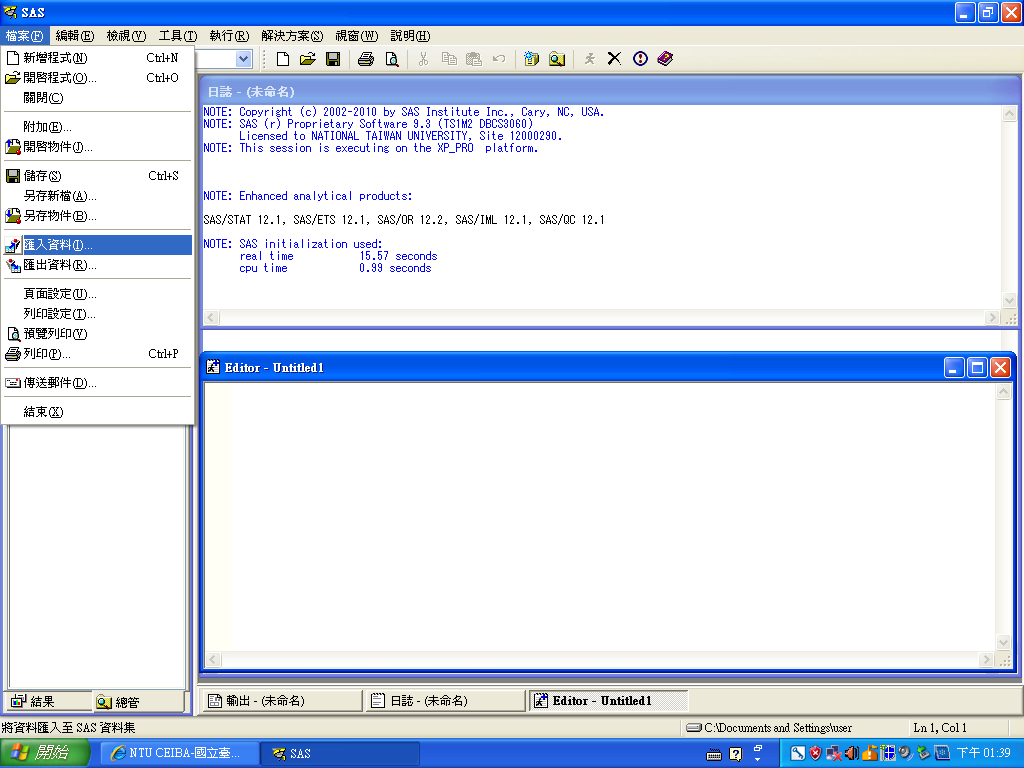[筆記] python3 zip, repeat 與 multiprocess.Pool() 的搭配用法
使用 multiprocess.Pool() 做多參數傳遞的函式
當我想在多核心運算的 function 的傳入參數不只一個的時候,或是傳入參數比較複雜的時候,需要一些 iteration tool 來幫忙
zip 的功用
#coding=utf-8
if __name__=='__main__':
a = [1,2]
b = [3,4]
# 這樣寫只能印出物件的記憶體位置
print(zip(a,b)) # <zip object at 0x1026ad148>
# 這樣寫才能看到內容
print(list(zip(a,b))) # [(1, 3), (2, 4)]
for i,j in zip(a,b):
print(i,j)
'''output:
1 3
2 4
'''
# 當 a, b 數量一樣的時候 zip 會幫你一對一對起來
repeat 的功用
協助把一個有多個數值的 list 與單一參數做多對一對應!
自動把單一個參數 “repeat” 多次,以至與 list 得數量相同
自動把單一個參數 “repeat” 多次,以至與 list 得數量相同
#coding=utf-8
from itertools import repeat
if __name__=='__main__':
# 但是當 a, b 數量不同的時候怎麼辦呢?
# 例如 a 是個 list, b 只是一個數字
a = [1,2,3]
b = 4
# 使用迭代工具 repeat 來自動幫 b 值做 repeat
print(list(zip(a,repeat(b)))) # [(1, 4), (2, 4), (3, 4)]
# 又或者我們要把 a,b,c 三個參數組合,拿去跟一個從零開始逐步加一成長中的數字一起迭代計算
a = 1
b = 2
c = [3.14,2.7183,0.009]
for i,j,k,l in zip(repeat(a),repeat(b),repeat(c),range(3)):
print(i,j,k,l)
'''output
1 2 [3.14, 2.7183, 0.009] 0
1 2 [3.14, 2.7183, 0.009] 1
1 2 [3.14, 2.7183, 0.009] 2
'''
p = 1
q = 2
m = 3
N = [0.2,0.3,0.4,0.5]
# 使用 zip 搭配 repeat 工具可以將所有參數組合好 目前 range(len(N)) 的部分是想要 iteration 的重點項目
print('zip:',list(zip(repeat(p),repeat(q),repeat(m),range(len(N)),repeat(N))))
''' 印出的 zip 長這樣:
zip: [(1, 2, 3, 0, [0.2, 0.3, 0.4, 0.5]), (1, 2, 3, 1, [0.2, 0.3, 0.4, 0.5]),
(1, 2, 3, 2, [0.2, 0.3, 0.4, 0.5]), (1, 2, 3, 3, [0.2, 0.3, 0.4, 0.5])]
'''
把 zip 與 repeat 搭配使用於 Pool 當中可以做到多參數傳遞
#coding=utf-8
import multiprocessing as mp
from itertools import repeat
import numpy as np
# 我們想要在 multiprocess 中執行以下多參數的 function
def count_error(p,q,m,t,N):
print('in func:',p,q,m,t,N)
return p + N[t]
if __name__=='__main__':
# 使用 pool
pool = mp.Pool()
# 使用 starmap 加上 zip 可以支援多參數傳遞,並可以接到 function 的 reutrn 值
res = pool.starmap(count_error, zip(repeat(p),repeat(q),repeat(m),range(len(N)),repeat(N)))
''' 執行 count_error 的過程
in func: 1 2 3 0 [0.2, 0.3, 0.4, 0.5]
in func: 1 2 3 1 [0.2, 0.3, 0.4, 0.5]
in func: 1 2 3 2 [0.2, 0.3, 0.4, 0.5]
in func: 1 2 3 3 [0.2, 0.3, 0.4, 0.5]
'''
print('result:',res) # result: [1.2, 1.3, 1.4, 1.5]
print('sum = ',sum(res)) # sum = 5.4




留言
張貼留言